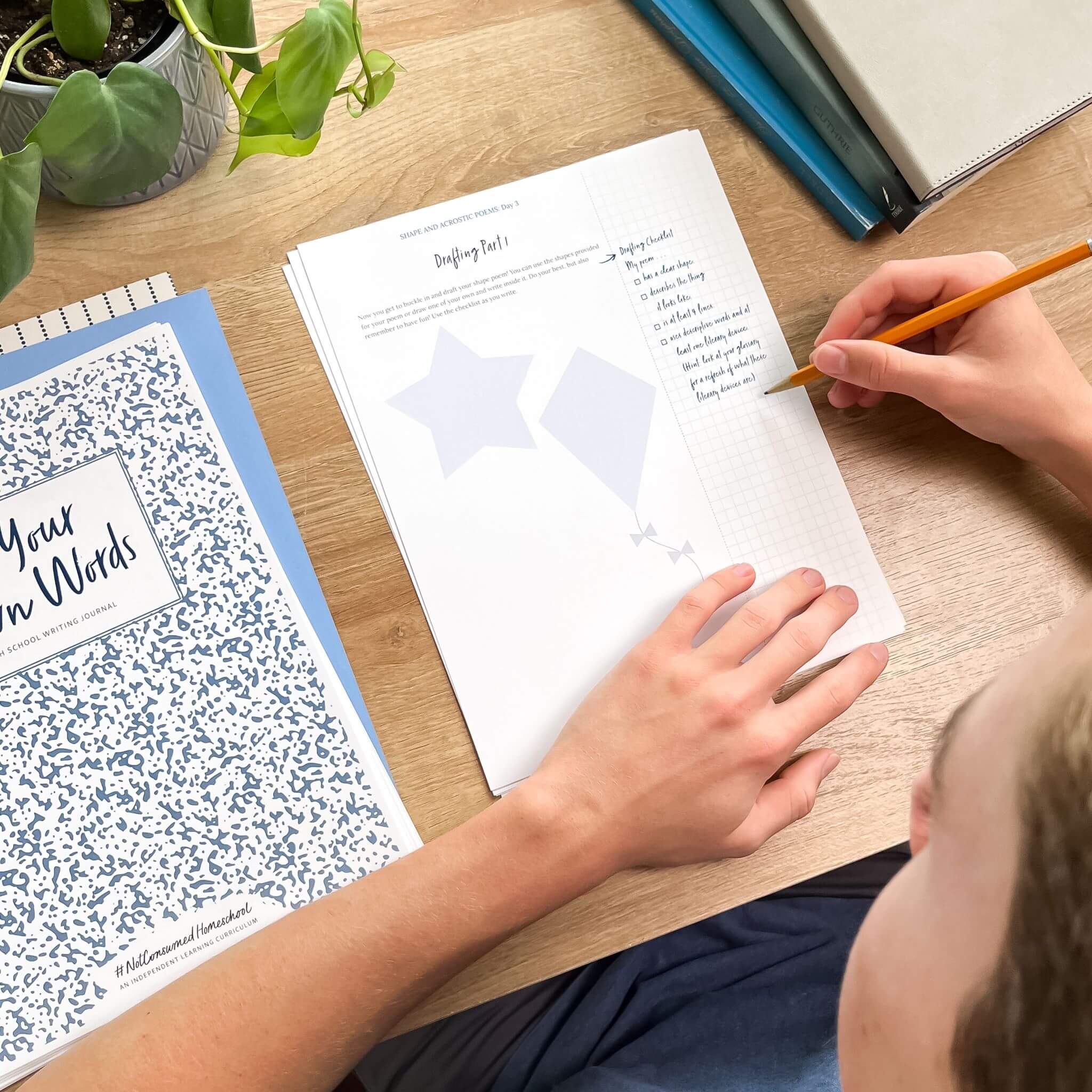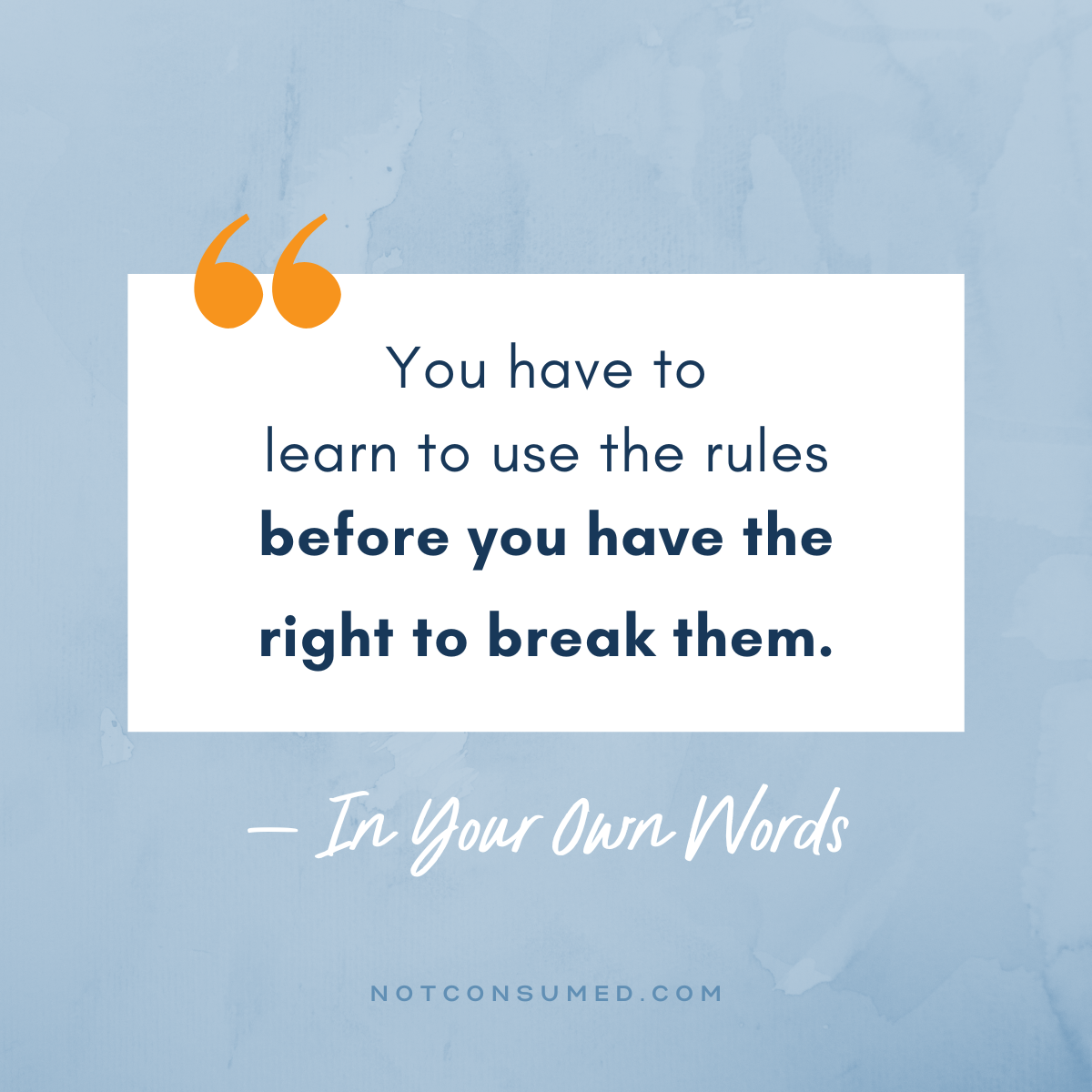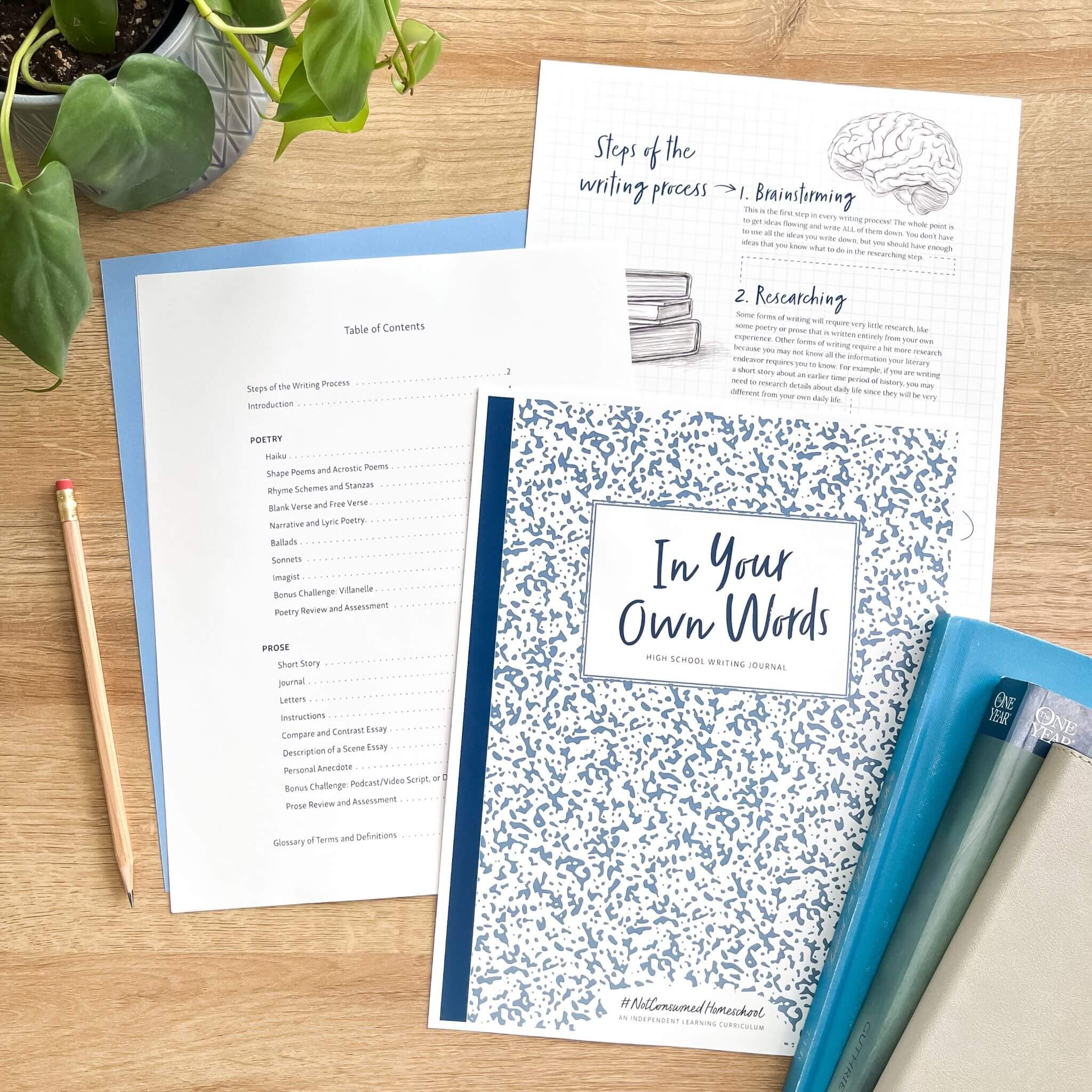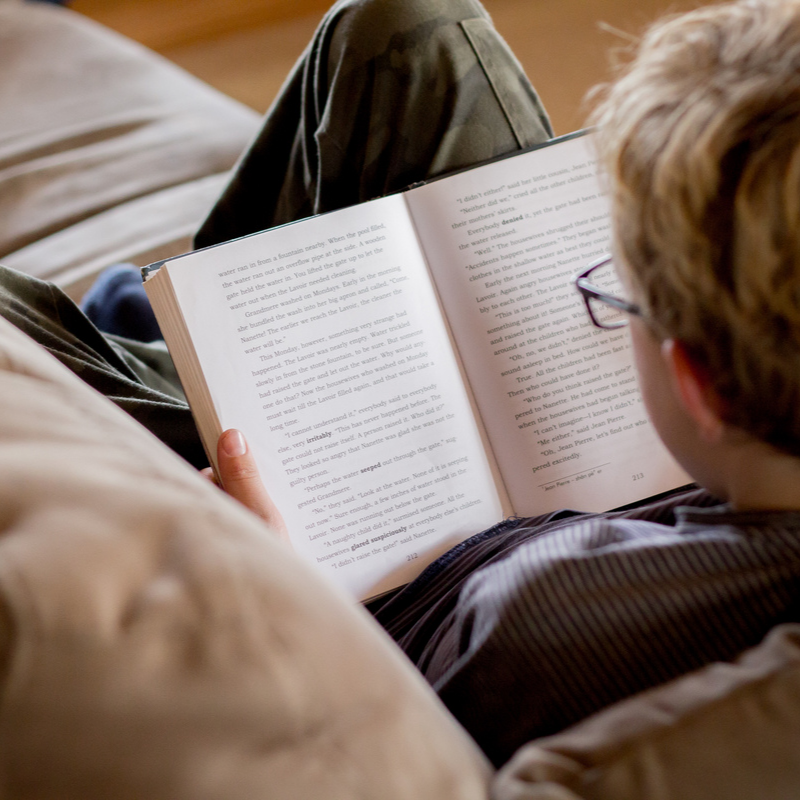3 Ways That Creative Writing Will Equip Your High Schooler for Life
Interested in creative writing for high schoolers? Find out why it’s important and how to push your student to excellence while encouraging them in creativity.
My friend recently thought it would be entertaining to see if she could describe a few of her friends (including me) to an AI generator. This particular generator was supposed to produce an animated character based on the prompts it was given.
It took a few tries, but eventually, the generator spit out characters that looked like my husband and me. I was both fascinated and a little bewildered that this was possible! With a little creativity, analysis, and time, my friend had communicated clearly enough that this program could interpret her words and reflect the appearance of her friends.
Maybe your high schooler isn’t describing their friends to an AI generator (or maybe they are!). No matter what your kids hope to do in their lives, communication will certainly be part of it. Whether composing a cover letter for a dream job or making a poster for the church’s VBS, our kids need to be good communicators.
One great way to hone and develop the skill of effective and clear communication is to take a creative writing course! Whether you see creative writing for high schoolers as the “fun class” to add to your schedule to get that last English credit or the class you can’t wait to take, it’s an incredibly valuable one that will equip your high schooler to be successful in life.

How Creative Writing Equips High Schoolers
1) Developing The Skills of Analysis and Recognition
Do you ever come across a meme or a video on social media where you’re clearly supposed to understand that something is wrong or a mistake, but you can’t figure out what it is? Maybe it says, “When you asked for a trim, and the hairstylist does this.” But the before and after pictures look exactly alike to you. Perhaps it says “don’t make these mistakes in your house” with a picture that looks like a perfectly comfortable and cozy room. Sometimes I just keep scrolling because I can’t make myself look at the comments. Other times, my curiosity gets the best of me, and I scour the comments, looking for the mistake that is supposedly so obvious.
Have you ever thought this might be how your kids feel about writing or literature? They may not know how to compose an essay that is artful AND clear. Maybe you wish they enjoyed “better” books because the ones they love to read seem cheesy or poorly written to you. Have you ever thought that they just may not know how to recognize good literature? In fact, this might be affecting their ability to write well.

In order to convey a story creatively, the author must intentionally organize and reveal details. A poem will not communicate effectively if it relies on old, worn-out clichés or weak comparisons. As your high schooler learns to analyze literature, they will grow in their ability to recognize good writing. Then, they can take these skills of analysis and recognition and apply them to other areas of their lives!
2) Embracing Creativity While Aspiring to Excellence
I think the majority of modern art shows us the result of embracing creativity at the sake of all else. When we let objectivity slide in favor of freedom and unchecked creativity, there’s no telling what will be defined as good or beautiful. We as parents should strive to teach our kids what excellence looks like!
While we smile at our younger kids’ efforts at spelling and punctuation, this isn’t where we want them to stay. We should definitely encourage our kids to use their creativity and write what they enjoy, but we don’t stop there. We want them to take the next steps of making their work truly good, compelling, and beautiful according to objective standards.
Maybe you’ve heard that you have to learn to use the rules before you have the right to break them. This is true in many areas of life, but especially with writing! Creativity starts with excellence. Our kids need to be confidently and consistently correct in their writing before they can intentionally and effectively stretch or break the rules for the sake of creativity. They must first develop discipline. Only then will their creativity also stand up to good and true standards of beauty. This is true not only in writing but in every area in which they seek to produce good work. Whether it’s their home, career, studies, or church, developing discipline will put your high schooler miles ahead of others who have not.
3) Learning to Think Critically
I’m sure you’ve realized that much of the entertainment and content we interact with throughout our lives is not produced by Christians. God has graciously gifted people with the creativity to be able to produce good and beautiful things! Consequently, even those who do not acknowledge God in their lives will often represent His truth in their work. Other times, we must recognize and acknowledge that the ideas presented by a certain person do not line up with a biblical worldview.
We won’t always be around to censor things for our kids. We will not be able to guard them from everything that contradicts the truth we live by. Because of this, it is SO important that our kids learn to interact with ideas and think critically in order to evaluate whether those ideas align with truth or not.
Through studying literature and practicing creative writing, your high schooler will learn that all true beauty comes from God. He is THE Creator and author of all truth. Because Christians clearly see God’s truth in our world, we can also recognize truth where it appears in the creations of authors who don’t acknowledge God themselves.
The Perfect Creative Writing Curriculum
If you want your high schooler to develop the skills of analysis, creativity, and critical thinking, there’s good news! We have created a brand new creative writing for high schoolers , In Your Own Words, that will push your student to excellence while encouraging them in creativity. In this creative writing journal, your high schooler will get the opportunity to analyze good literature written by both Christian and secular authors. As they examine the writing of others, they will also learn what elements, qualities, and characteristics make up good literature. Then, the exercises and writing assignments they work through will equip them to develop good style in their own writing. In Your Own Words will prepare your kids to recognize and produce excellent communication while also allowing them to be imaginative and explore what they enjoy!
More Christian Homeschool Curriculum
Find additional Christian homeschool curriculum tips and favorites below.
In Other Words, is like the consumer math of the English world. Kids learn to write a resume and cover letter, professional emails, and even product reviews. It’s a great option for a high school senior looking to build those life skills needed after graduation.
Looking for a high school homeschool curriculum? After years of homeschooling, here are our favorites for 10th-12th grade.

Ever since she was a little girl, listening delightedly as her mom read books and poetry out loud to her, Jessica has been enraptured by the power of words. When she is not reading or scribbling down poems of her own, Jessica can most likely be found hiking with her husband or trying out new recipes. She has yet to discover at what point plants, journals, and coffee mugs become *excessive,* but is sure she can still find room for one or two more. Through her bachelor’s degree in English Literature, opportunities to write for various small publications, and experience as a Staff Writer for Not Consumed Ministries, Jessica has grown in her passion for writing and desire to share that passion with others. As she seeks to show the goodness and beauty of God in her calling as a writer-wife-homemaker, Jessica hopes to encourage you in your relationships with family, friends, and most importantly, in your relationship with Christ.









